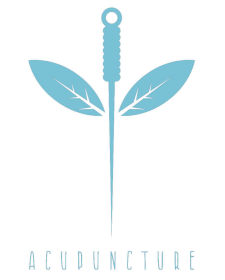
Photo by Gratisography on Pexels.com
Do you have a bad taste in your mouth? Are your gums swollen? Do you feel a sharp or constant pain in your jaw? These are all symptoms of toothache and is a very common health problem for both the young and old alike. In most cases, the pain comes when the nerve to a tooth becomes irritated.
Causes of Toothache and Tooth Pain
When people think tooth pain, the first thing that comes to their minds is tooth decay caused by infection. However, just putting stress on your teeth by clinching your jaw too hard can be just as likely to cause pain. There are several causes of toothache; here we have listed some of the most common ones.
- Tooth decay
- Tooth fracture
- Abscessed tooth
- Grinding teeth
- Infected gums and root of the tooth
- Accumulation of food between the teeth
- Trauma or injury to the tooth
- Sinus infection
Of the various ways we can mistreat our teeth, teeth grinding is a slow and chronic condition that a visit to the dentist couldn’t cure. Regular teeth grinding is a result of stress and anxiety, it often occurs during sleep and is more likely caused by an abnormal bite or missing or crooked teeth. It can also be caused by a sleep disorder such as sleep apnea.
In some cases, chronic teeth grinding can result in a fracturing, loosening, or loss of teeth. The chronic grinding may wear teeth down to stumps. When these events happen, bridges, crowns, root canals, implants, partial dentures, and even complete dentures may be needed. However, this doesn’t stop you from grinding and clinching your jaw.
Anxiety and stress will persist even after your dental repair. Not only can severe grinding damage teeth and result in tooth loss, it can also affect your jaws, progressing into TMD/TMJ, and even change the appearance of your face.
In most cases, people suffering from TMJ can avoid worsening the problem with proper stress relief techniques or medication. If stress is causing you to grind your teeth, ask your doctor or dentist about options to reduce your stress. Attending stress counseling, starting an exercise program, seeing a physical therapist, or obtaining a prescription for muscle relaxants are among some of the options that may be offered. However, using western drugs usually carries side effects. It is best to rely on natural healing methods which I will detail at the end of the article.
What Can I Do to Stop Grinding My Teeth?
If you grind your teeth while your sleep, your dentist can fit you with a mouth guard to protect your teeth from grinding during sleep. Seeking treatment for your sleeping disorder may reduce or eliminate the grinding habit.
Other tips to help you stop teeth grinding include:
- Avoid alcohol. Grinding tends to intensify after alcohol consumption.
- Do not chew on pencils or pens or anything that is not food. Avoid chewing gum as it allows your jaw muscles to get more used to clenching and makes you more likely to grind your teeth.
- Train yourself not to clench or grind your teeth. If you notice that you clench or grind during the day, position the tip of your tongue between your teeth. This practice trains your jaw muscles to relax.
- Relax your jaw muscles at night by holding a warm washcloth against your cheek in front of your earlobe.
- Acupuncture, acupressure and herbal medicine can treat anxiety and reduce stress, eliminating the cause of the grinding.
What is acupressure?
Acupressure has been in practice for more than 2,000 years. It is the act of applying pressure to a certain point on your body. The pressure signals the body to alleviate tension, remedy blood flow issues, and lower pain. This can be done by self-massage or by a professional or friend.
How do I do acupressure?
Acupressure can be administered at home or by your local acupuncturist. If you choose your home, pick a quiet, stress free area of your living space to help you focus and maximize the acupressure benefits.
- Get comfortable! Find a relaxing spot and play some meditation music. Some scented candles can help too.
- Relax! Breathe deeply and try to relax your muscles and limbs.
- Massage or rub each point with firm pressure.
- Repeat as often as you like.
- Make sure to stop if intense pain occurs.
Top 5 pressure points for toothaches
- That painful spot
This pressure point is widely used to alleviate toothaches, swollen gums, and tooth decay. Trace down from outside of your eye until you reach the bottom of your cheekbone. It’s typically called the cheekbone hole. - The stress-be-gone button
This pressure point is located at the top of your shoulder. It’s right in the middle of the end of your shoulder and the side of your neck. This point is used to aid facial pain, neck pain, and headaches. - The headache reliever
This point is used for headaches, stress, and other above-the-neck pains. It’s located in-between your thumb and index finger, hallway between the web and the joint where two bones meet. - The Jaw Spot
This pressure point is typically used to relieve mouth and tooth ailments. To find this point, you should clench your teeth together naturally. It’s located on the side of your jaw, in the middle of that muscle that tightens up when you clinch your jaw. Of course, you don’t need to clinch while you are massaging it. - That nausea spot
Typically for nausea, tiredness, and stress, this pressure point is located below your knee. If you place your hand on your kneecap, it’s typically where your pinky is resting. You should apply pressure in a downward motion to the outside of your shin bone.
If you have any trouble finding these pressure points, just make an appoint and I’ll be happy to show you where they are and the proper technique to massage them. Of course, acupressure combined with acupuncture is the most effective course of treatment.


